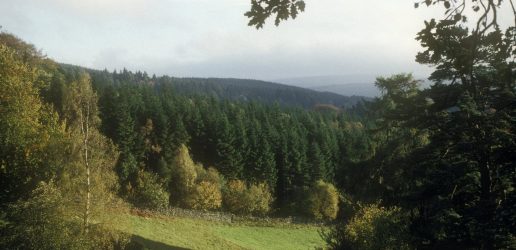
Earlier this month UK Research and Innovation (UKRI) announced the successful Future of UK Treescapes programme research bids and Forest Research has secured participation in three of the funded projects.
Six research teams across the UK will receive a share of £10.5 million funding from UKRI to develop new tools and approaches which will help trees and woodlands adapt to climate change and enable the UK to reach net zero greenhouse gas emissions. The research will also improve understanding of the value of trees to people and the planet, and support the expansion of treescapes across the UK.
Involving multi-disciplinary teams from thirteen universities and research institutes, over 40 non-academic partners and supporters, and with funding for three years, this funding forms part of the £14.5 million Future of UK Treescapes Programme.
Forest Research has secured participation in the following projects:
The other projects funded by Treescapes are:
Forest Research Chief Scientist, Professor Chris Quine said:
“We’re delighted to be involved in several of these projects and are grateful to the funders for enabling us to actively participate in these stimulating research collaborations. Spanning topics covering urban trees, community woodland partnerships, and the genetics of tree populations they will enable Forest Research to apply its wide-ranging expertise in support of resilient treescapes.”
New research has been published which explores how to enable and encourage access to woodlands for diverse members of the public.
Forest Research has been involved in a project focusing on efforts to improve inclusivity in biosecurity practices by exploring how to integrate different knowledge systems into mainstream decision-making.

Forest Research has released the latest Accredited Official Statistics on woodland and forestry in the UK.
New research has been published which explores how to enable and encourage access to woodlands for diverse members of the public.
Forest Research has been involved in a project focusing on efforts to improve inclusivity in biosecurity practices by exploring how to integrate different knowledge systems into mainstream decision-making.

Forest Research has released the latest Accredited Official Statistics on woodland and forestry in the UK.